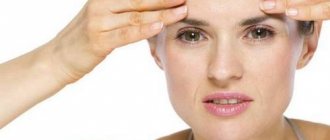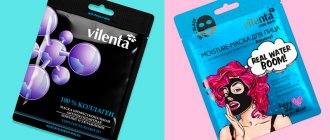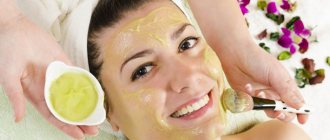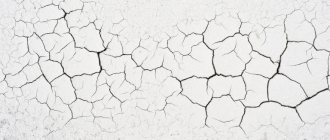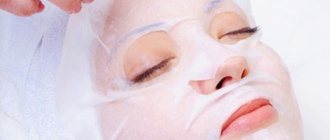Products good for skin
What healthy foods should you include in your diet to keep your facial skin healthy?
It is very important that the diet is balanced. During the day it is recommended to consume 400 g of fruits and vegetables. They contain a large amount of fiber. vitamins, microelements. You can get rid of acne, pigmentation, and dry skin by including some foods in your diet.
For age spots
Pigmentation may indicate a lack of vitamins and in particular vitamin B12. Animal products are rich in this vitamin.
Products containing vitamins C, E, and antioxidants will help get rid of pigmentation.
Rich in them:
- Citrus;
- Strawberry;
- Kiwi;
- Pomegranate;
- Tomatoes.
Long exposure to the sun makes pigmentation more noticeable. You can protect your skin from ultraviolet rays. by eating foods rich in antioxidants:
- Pineapples;
- Grapefruits;
- Plum;
- Berries;
- Spinach;
- Chilli;
- Cabbage – kale and Brussels sprouts;
- Buckwheat.
For oily skin
The secretion of sebaceous glands is increased by foods with a high glycemic index.
The glycemic index is a relative indicator of the effect of carbohydrates in food on changes in blood sugar levels.
Source Wikipedia
The cause of oily shine is the increased secretion of sebum by the glands.
A diet high in vitamin A will help prevent you from getting oily. In addition, the foods included in the diet are not only healthy, but also tasty. This:
- Carrot;
- Dried apricots;
- Mango;
- Spinach;
- Sweet potato;
- Egg yolk.
In addition, it is necessary to reduce the consumption of white bread, buns, potatoes, and soft wheat pasta. And very soon you will forget about skin problems.
For acne
Acne occurs in people with oily skin. And again, foods with a high glycemic index are to blame for this. Sebaceous glands clog pores. Bacteria begin to multiply and as a result, an inflammatory process develops.
You can also get rid of acne with diet. The diet should include as many foods as possible rich in polyunsaturated fatty acids, because... they relieve inflammation. This:
- Walnuts;
- Linseed oil;
- Flax seeds;
- Seafood;
- Seaweed;
- Fruits;
- Vegetables.
For dry skin
Dry skin indicates an excess of vitamin E and a lack of cholesterol. Lack of cholesterol is typical for vegetarians, since most of it enters the body when eating meat and fish.
To increase the concentration of unsaturated fatty acids in the diet, you must include:
- Legumes;
- Eggs;
- Seaweed;
- Nuts;
- Avocado;
- Soy.
What do world stars eat?
Appearance for world stars is more than just appearance - along with acting, it is one of the most important tools necessary for their professional activities. It is not uncommon for an actor to repeatedly gain and lose weight during his career, use tons of makeup, and at the same time maintain his skin in perfect condition. There are many vegetarians and even raw foodists among Hollywood stars. So, which products are the most popular among celebrities?
- Avocado is recommended by Victoria Beckham, both for food and for cosmetic masks.
- Milkshakes with nuts, bananas and blueberries - a recipe from the popular Korean singer Goo Ha Ra.
- Another Korean beauty, the famous actress Ko Hyun-jung, prefers to give up spicy, salty and smoked dishes and wash everything down with grapefruit tea.
- Angelina Jolie practices complete abstinence from fast carbohydrates in the form of baked goods. She makes up for the lack of carbohydrates with meat, nuts and legumes.
- Madonna, Halle Berry and many other actors prefer to eat exclusively vegetables and fruits, occasionally adding seafood to their diet.
- Korean actor Song Joong Ki believes that the secret to healthy skin is eating apples and yogurt every day.
What is good for facial skin
Not every woman can boast of good skin condition. Some people have dry skin, while others have oily skin. Skin care does not only mean using different creams and toners every day. The food we eat every day is important.
What foods should you limit yourself from?
Sunflower oil
It does not harm the body and there is no need to give it up. But the form in which it is consumed is of great importance for the skin.
When cooking, the oil is subjected to heat treatment. As a result, free radicals are formed, which negatively affect the skin. In large quantities, they lead to changes in the acid-oily composition of the skin.
To avoid problems with fat content, you should consume as little processed oil as possible. Oily skin will not be affected by consuming oil in the proportion of 1 g per 1 kg of weight.
Sugar
Excessive sugar consumption can lead to acne. Glucose is the enemy of collagen, a substance that promotes skin rejuvenation. It simply destroys it if it regularly exceeds the required norm.
The approximate norm of sugar consumption per day is 30 – 45 grams.
Protein products
Consuming them in large quantities makes it difficult for the liver and intestines to function.
The record holders for protein content are:
- Meat;
- Fish;
- Eggs;
- Cheese;
- Soy;
- Cottage cheese;
- Beans.
To protect your skin from acne, the daily dose of protein should be 1 g per 1 kg of weight.
Pickles
An excess of salt in the body leads to moisture retention, and with it toxins, which can cause acne.
Therefore, you should limit yourself in eating salty foods. The daily norm should be 50 g per day.
Tea
The caffeine content in it reduces the activity of blood flow and nutrients to the skin.
People with dry skin are not recommended to drink more than 2 glasses of tea per day.
Alcohol
It is a depressant that slows down all processes in the body. In large doses, it slows down the reaction and negatively affects coordination of movements.
Alcohol abuse can lead to obesity, stomach ulcers, liver cirrhosis, kidney and heart diseases.
The harmless rate of consumption of alcoholic beverages is 50–100 ml per week.
Products beneficial for facial skin
Vegetables
The best companions for healthy and beautiful skin are vegetables. Therefore, they must be present in the diet of every person. Just 100 g of vegetables a day will make your skin glowing.
Vegetables are a valuable source of vitamins and minerals and contain fiber. It improves the functioning of the digestive system, effectively removes toxins and harmful substances, and increases the body's defenses.
15 Healthiest Vegetables
- Carrot;
- Tomatoes;
- Garlic;
- Onion;
- Bell pepper;
- Beet;
- White cabbage;
- Cauliflower;
- Broccoli;
- Potato;
- Zucchini;
- Eggplant;
- Radish;
- Spinach;
- Pumpkin.
Fermented milk products
Fermented milk products include:
- Cottage cheese;
- Ryazhenka;
- Yogurt;
- Kefir;
- Sour cream;
- Kumis.
Their consumption has a beneficial effect on intestinal function.
Fatty fish
Types of oily fish include:
- Salmon;
- Halibut;
- Sturgeon;
- Salmon;
- Beluga;
- Chinook;
- Nelpa;
- Atlantic herring.
Varieties of fatty fish are rich in vitamins, microelements, protein, and Omega-3 polyunsaturated fatty acids. They help lower cholesterol levels, improve blood circulation, and reduce the risk of blood clots.
Regular consumption of varieties of fatty fish improves the condition of joints and skin, and has a positive effect on brain function. The general emotional state is normalized, depression is reduced. The risk of intestinal inflammation and cancer formation is reduced.
How diet affects skin condition
Dr. Jessica Wu is Chinese American. She has been well known in Hollywood for a long time: it is to Wu’s clinic that stars and starlets run to after waking up with a volcanic pimple on their forehead on the eve of auditioning for a role. For example, the owner of beautiful glowing skin, actress Katherine Heigl, is one of the most faithful followers of Dr. Wu’s methods.
A Harvard Medical School graduate and board-certified dermatologist, Wu also recently trained as a nutritionist to sharpen her understanding of what foods are good and bad for skin, and to add weight and benefit to nutritional advice as an integral part of self-care.
As a result, the Feed Your Face system was born, recently published in the United States in the form of a book that quickly became a bestseller. The basis of a healthy diet for the skin is the idea that there are no “problem people”, there are only problematic eating habits and inclinations.
“I always tell people who come to me for help: What you put in your mouth is every bit as important as what you put on your skin,” says Dr. Wu. It seems so obvious! However, often, eating poorly, we are sincerely surprised that the skin looks dull, uneven, unhealthy, and we try to correct it with the help of cosmetics. More often than others, lovers of strict diets or diets that involve the abandonment of any of the essential nutrients encounter such an unpleasant effect.
Products enter the digestive tract and are “broken down” into amino acids, fats, minerals, vitamins - all those “building blocks” that our body uses to restore organs and produce new healthy tissues. The skin is the same organ; it requires an uninterrupted supply of the right substances, not so much from the outside as from the inside. For example, if your menu is low in protein, do not expect elasticity and density from your skin; the body has nothing to make collagen from.
Jessica Crescenzi, founder of the New York salon Beauty Guru, appreciates the advice of a fellow dermatologist and completely agrees with her:
“You'd be surprised how many times I've heard from clients and colleagues that they follow all their beauty routines and see no improvement. In such cases, I always ask - what do you eat? Everything that your microflora cannot cope with immediately appears on your face!”
Dark circles under the eyes
They can appear not only due to fatigue or lack of sleep.
Why is there a problem?
Food allergies or intolerances. If the symptom of dark circles is long-lasting, consult a doctor and get tested for food intolerance. Eliminate potentially dangerous milk, instant coffee, and sweeteners.
Lack of iron and low hemoglobin, dehydration are among the causes of dark circles.
What to include in your diet?
Water. Drink it a lot. Don't overuse coffee.
Meat. Replenishes iron deficiency and increases hemoglobin.
Tuna. Rich in polyunsaturated fatty acids and omega-3 acids, iron. Zinc is a component of cellular regeneration processes and alleviates the manifestations of allergies.
Orange or red bell pepper. Its vitamin C is a powerful antioxidant. Reduces pigmentation, evening out complexion. Stimulates collagen production. Increases the skin's resistance to the environment.
The connection between food and skin health is undeniable. Our body, like nature, loves harmony and moderation in everything. Pay attention to your menu, and your skin will thank you.
Dark spots
They most often appear on the arms, face and chest. Their color ranges from pale yellow to dark brown.
Why is there a problem?
One of the possible reasons is a deficiency of vitamins, in particular B12, and some minerals. The result is metabolic disorders. Intoxication of the body and stressful situations are also among the “provocateurs” of hyperpigmentation.
Pigment spots especially appear if you stay in the sun for a long time. Foods rich in antioxidants help protect your skin from harmful ultraviolet rays.
What to include in your diet?
It is worth paying attention to the following facial beauty products:
Meat is the main source of vitamin B12, which converts carbohydrates into energy.
Citrus fruits (grapefruit, lemon, lime, oranges) are rich in vitamins and minerals. Promote collagen production and reduce melanin content in the skin.
Berries. Viburnum, blueberries, raspberries, black currants are a source of vitamin C and antioxidants. Strawberry ellagic acid minimizes the effects of harmful ultraviolet radiation. Sea buckthorn is a champion in vitamin E content.
Cabbage. White vegetables contain many times more vitamin C than citrus fruits. Broccoli is a supplier of vitamins and minerals in “gigantic quantities” and a hormonal normalizer. Brussels sprouts are low in calories and contain phosphorus, potassium, and iron. Leafy (Peking) – a source of vitamin D.
Green leafy vegetables . In addition to vitamin C, it also contains silicon dioxide, which is important for the synthesis of connective tissue.
Tomatoes. Lycopene in red vegetables – protects the skin from free radicals and ultraviolet radiation.
Vitamins for healthy skin
It is important to choose the right nutrition to cleanse your skin and make up your daily diet from foods rich in vitamins.
Let's look at the most beneficial vitamins for the skin:
- Vitamin E or tocopherol is found in eggs, meat, liver and vegetable oils. Tocopherol helps the body produce estrogens (beauty hormones), which give elasticity to the epidermis and accelerate cell regeneration.
- Vitamin A or beta-carotene comes from dairy products, fish oil, butter, carrots, pumpkin pulp, melon and grapes. Beta-carotene heals wounds and accelerates regeneration.
- Vitamin C protects the skin surface from exposure to sunlight and prevents photoaging. It removes free radicals and keeps the skin elastic. Fresh fruits and vegetables are rich in vitamin C.
- B vitamins help maintain water balance, eliminate early wrinkles and keep the epidermis toned.




